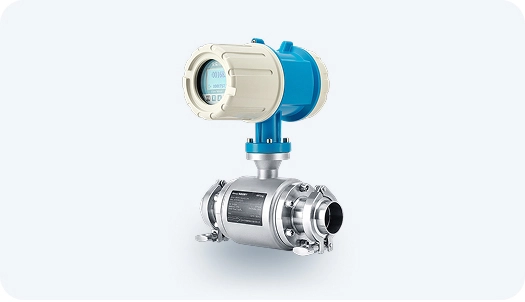-
Date:2025-06-04
-
Page View:460
3A SanitaryFlow Meters have been widely used in multiple industries, meeting the market demand for efficient and sanitary flow measurement solutions.The flow measurement of materials and products in the beer industry production process is valued by many companies, especially the liquid flow measurement instruments used are different from those of general companies and have their own special requirements. For example, it is necessary to avoid bacterial growth, facilitate frequent cleaning, and withstand high temperature conditions. The specific requirements for disinfection of corrosive alkaline water and hydrogen peroxide are as follows:
The sensor measurement circuit is simple and has no flow-blocking parts or parts where the medium is easily retained;
All materials of parts in contact with media meet the requirements of food hygiene, such as the requirements of FDA (U.S. Food and Drug Administration) and EHEDG (European Hygienic Equipment Design Group)
3.Parts in contact with the medium can withstand the temperature shock and corrosion caused by steam, alkaline water and hydrogen peroxide cleaning;
When used in filling process, it should have fast response performance and high measurement accuracy;
It can adapt to low temperature (about 2℃) and humid working environment. Among many liquid flow meter products, 3A Sanitary Flow Meters can meet the above requirements.

Installation and Maintenance
Proper installation and regular maintenance of pool flow meters are essential to ensure accurate readings and efficient pool management. Here are some key considerations for installing and maintaining pool flow meters:
Proper Placement
Pool flow meters should be strategically installed in the pool's circulation system to obtain accurate readings. It is recommended to place the flow meter in a straight pipe section, away from any bends, elbows, or obstructions that could disrupt the flow of water. Proper placement ensures that the water passes through the meter evenly and without turbulence, resulting in reliable flow rate measurements.
Professional Installation
For optimal performance and accurate readings, it is best to have a professional install the pool flow meter. Certified technicians have the expertise to identify the ideal location for the meter based on the pool's unique setup. They can also ensure that the meter is securely installed and properly calibrated for precise measurements.
Calibration and Cleaning
Regular calibration and cleaning are vital to maintain the accuracy of the flow meter. Calibration involves comparing the meter's readings to a known standard and making adjustments if necessary. Pool owners should follow the manufacturer's recommended calibration schedule or seek professional assistance for this process.
Cleaning the flow meter is equally important, especially in environments with debris or mineral buildup. Sediment or impurities can affect the meter's performance and accuracy. Pool owners should regularly inspect the meter and clean it as needed to prevent any obstruction in the flow path.
4. Monitoring and Troubleshooting
Pool operators should monitor the flow meter regularly to ensure it is functioning correctly. Any sudden changes in the flow rate or irregular readings should be promptly investigated to identify potential issues. Troubleshooting should be carried out by trained personnel or in consultation with the flow meter manufacturer.
5. Replacement and Upgrades
Like any equipment, pool flow meters have a lifespan and may require replacement over time. If a flow meter is consistently providing inaccurate readings or experiencing frequent malfunctions, it might be time for a replacement. Upgrading to a newer model with improved features and capabilities could also be considered to enhance pool management efficiency.
6. Compliance and Safety
Ensure that the pool flow meter complies with relevant safety standards and regulations. Some jurisdictions may have specific requirements for flow meter installations in public pools. Adhering to these guidelines ensures the safety of pool users and avoids potential legal issues.
By following proper installation procedures and conducting regular maintenance, pool owners can rely on their flow meters to provide accurate data on water flow. This information is invaluable for efficient pool maintenance, water quality control, and overall energy and cost savings. With diligent care and attention, pool flow meters can contribute significantly to the optimal functioning and enjoyment of the swimming pool.










